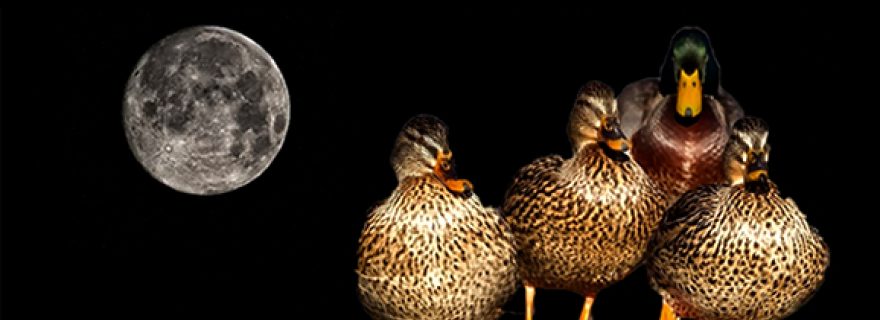Ducky Genovese (or how to make a duck a bystander)
Last night I experienced that ducks can be bystanders that help interpret a potential emergency.
Quacks
In the middle of the night, I was woken up by the sound of a duck in distress. There is a pond at the bottom of our garden – inhabited by ducks, swans, fish, and frogs – and apparently one of them was facing an emergency. The quacks sounded first muffled, then loud, then gradually became softer, then loud and panicky again, and then softer and softer, as though the duck was slowly being strangled. Clearly something was wrong.
Bystander effect
As a social psychologist, I found myself thinking of the bystander effect. This is the phenomenon that people are less likely to offer help to a victim if other people are present. In fact, the greater the number of bystanders, the less likely it is that any one of them will help. It was first investigated by Darley and Latané, who studied this phenomenon after the murder of Kitty Genovese in New York in 1964. This murder was apparently witnessed by more than 30 people, who watched from their apartments, but no one intervened or called the police.
What do others do?
How come? The idea is that in a potential emergency people look to others to assess whether they need to take action. If other people—the bystanders— do not take action, or seem to interpret the situation as non-dangerous, there is apparently nothing to worry about; so you interpret the situation as a non-emergency and do not take action. In the case of the Kitty Genovese murder, people witnessing the murder did not see other people taking action, and did not communicate with each other, so everyone assumed the other people thought no intervention was needed, and as a result no one intervened.
Responsibility
Remembering the bystander effect, I realized I might have a Ducky Genovese in my garden. Although I did not feel like leaving my warm bed to rescue a duck, as a social psychologist I felt responsible for at least fighting the bystander effect: I had to take some action and not leave this poor duck to its fate; otherwise Darley and Latané would have done their work in vain.
Silent
So I put my clothes on and bravely ventured out into the garden, bracing myself for some horrible bloody sight and a half-strangled duck. When I opened the back door, everything had become silent; no more quacks or squawks. I checked my garden, even checked the neighbor’s garden, but did not find a duck in distress.
The ducks became my bystanders
Then, suddenly, I saw a couple of ducks sitting on the other side of the pond, just a few feet away. They were clearly at ease, almost asleep, and somewhat disturbed by my appearing in the middle of the night. Amazing, as for a good fifteen minutes there had been a noisy duck in distress within their reach! I was surprised at first, but then the ducks became my bystanders: if even those ducks were undisturbed by the squawking of their fellow feathered friend, then why would I worry? There was probably nothing wrong. I went back to bed with a clear conscience.


